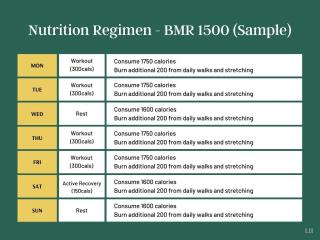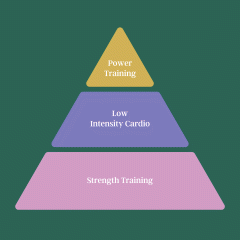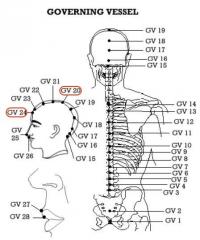One life goal that everyone has is having an established career. Everything that we do as humans is aimed towards one thing only—financial stability. Luckily, this article will help you learn about professional development goals that will lead you to this stage.
Reaching a well-settled stage in life is not that hard if you follow a systematic route. Consistent growth is the key to an established career. For consistent growth, you need to put in consistent hard work as well.
It may sound hard to manage but with the right professional development goals, you can build yourself gradually but successfully!
How to Set Professional Development Goals
Professional development goals are not that different from general life goals. But they’re also not quite the same. Here’s a quick guide on how to plan your professional goals for success and stability!
1. Keep Them SMART
Regardless of the category of goals you’re devising, it’s extremely important and the number one priority to keep them SMART, always.
If you’re not familiar with SMART goals, it’s an acronym that stands for specific, measurable, achievable, relevant, and time-bound. These are all the qualities that your goals should have.
Specificity defines exactly what you want. So, if you want to progress, what defines this progress needs to be specified. The progress needs to be in some form of a measurable unit so that you can weigh your achievement.
Moreover, goals need to be realistically achievable otherwise they’re useless. Relevance to the rest of your goals, life morals, values, etc. is also necessary. Lastly, your goals need to have a time-frame so that you’re not left procrastinating.
2. Start With the Big Picture
Most things in life require you to start from step one. However, when you’re setting goals for professional development, you start at the end. Basically, you need to have the final destination in mind.
What is it that you’re truly striving to get? Only with the end in mind can you develop a relevant plan. It will keep you from wandering around purposelessly.
Moreover, the big picture keeps you motivated. You’ll always be well aware of what you’re going to achieve by putting in the hard work that you’re required to. This is especially important in professional development goals because you do not have enough room to experiment when you’re trying to make progress career-wise. Hence, with the bigger, end goal in mind, you can plan everything else accordingly.
You’ll have a rough estimate of the time you have to fulfill this final goal too. For example, if you give yourself 5 years, you’ll know how to time the rest of the minor goals to be able to fulfill the big picture on time.
3. Break it Down
Although you start with the final picture in mind, you shouldn’t make the mistake of aiming for it in one go. As ambitious as it sounds, it’s going to be a major fail.
Once you’ve decided on the final destination, it’s time to break it down. Make smaller goals that contribute to the bigger aim. Break it down to easily achievable chunks based on smaller periods.
For example, if your professional goal is to be the head of the department by the end of next year, you have to start working on it on a weekly and monthly basis. You’ll start by outperforming your job responsibilities weekly. Your plan should be to be the assistant head of the department in the next 6 months.
Other similar minor goals are the small stepping stones that you need to get to the end of the lake. If you try to go across in one jump, you’re likely to fall and make a mess.
4. Use Your Performance Evaluations
The biggest ease in professional development goals is the availability of a third person’s opinion, especially an expert’s. Life goals are generally harder to work on due to the lack of understanding of your standing.
On the other hand, your performance evaluations in your workplace are a major convenience. You know exactly where you’re doing well so you can continue doing it the same way. Your goals around your strong qualities can be to keep them consistent.
Similarly, you’re also told where you’re lagging behind. Therefore, you can plan goals to improve them accordingly.
Another benefit of performance evaluations is that you can measure your progress. Your evaluation before your goals versus after you’ve worked on the goals will show you an authentic outcome of your efforts.
5. There’s Always More to Learn
A stagnant career is a result of overestimating yourself. This isn’t the only reason but one of the major contributing factors. If you want to continue growing consistently, you need to have a mindset where you’re always open to new knowledge.
One thing you should imprint in your mind is that you can never gain all the knowledge in the world. This isn’t because you’re incapable of doing so. Instead, it’s because there’s something new to learn every day.
Even if you’re on your desired stage of success, do not give up learning. Never develop the mindset that you know everything. The day you do so, your downfall will begin.
Examples of Professional Development Goals to Have
If you need some help getting started, the following examples of professional development goals will help you kick-off. Start with these basics. You can then gradually start moving towards personalized, bigger goals in the long run.
1. Improve Time Management
No matter where you work, what your post is, or what work you do, time management is the key because time is money in this world.
You need time management skills to balance your work life and personal life for mental peace. You need it to manage your work responsibilities for professional stability. Work towards improving your time management skills if you want to accomplish big things.
2. Work on Your Communication Skills
Communication plays its part in every aspect of life. But when it comes to a professional setting, you’re as good as your communication skills are. No matter how creative and authentic your ideas are, it’s useless unless you can get the message across,.
Hence, right off the bat, if you want to develop your professional skills, work on communication for sure. Once you learn to get your thoughts across properly, you’ll open many new doors for yourself.
3. Polish Your Presentation Skills
Another significant work goal you should have is to work on your presentation skills. This is a more formal way of communication. Moreover, presentations have a lot more to them than just the words that you speak.
Whatever mode of presentation you’re using, the way you’re dressed, how you speak, and your body language are all part of your presentation skills. Learn how to present in what circumstances so that you can prove to be a valuable asset in front of your clients and superiors.
4. Learn Teamwork
Very few people enjoy teamwork. Yet, it is a part of most workplaces and work projects.
If you’re someone who despises working with others, make it your goal to change that. You need to get comfortable with people who have different working styles. You need to learn to have a say in a group of people without overpowering everyone else.
5. Get Organized
Organized surroundings and thoughts are the only way to let creativity come through. Wherever you work, improve your organization skills. It will help you manage time better as well. Moreover, organized thoughts will boost your communication and inventiveness as well. These qualities will make you a valued employee in your organization.
6. Boost Your Learning Ability
This goal is something that is on everyone’s mind but it usually doesn’t translate to actions. It is perceived to be something so general that it is ignored in the process of professional growth.
Breakdown this goal in two parts: learn about yourself and then learn other things. So, start by identifying your learning style. This will aid in the second part of the process.
After that, take steps to improve your existing skills and learn new ones. Enroll in courses, learn from your coworkers, take feedback to learn more about your performance, and most importantly, don’t shy away from asking for help in learning new things.
The Takeaway
Setting professional development goals might seem like an extra step. It is a reinforcement of what you’re supposed to or want to do anyway. However, defining these aims in the form of goals is a personal commitment. It strengthens your willpower to turn your wishes to reality.
Professional development goals help you reach the destination that you may think is way out of your access. It breaks down the long journey into milestones that are realistic and easy to reach.
The guideline along with the examples given above are the perfect push start you need to start your journey of professional growth. So, without wasting any more time, start planning your road to success by coming up with effective professional development goals for yourself!
More About Professional Development Goals
Featured photo credit: Scott Graham via unsplash.com





























































